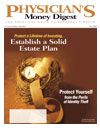Reconsider the Importance of Bond Funds
Bond funds can be beneficial for individualinvestors, and particularly for high-yield fixedincomeportfolios, for their diversificationvalue. They are also excellent vehicles for those whowant their cash flow to be reinvested automatically.But there are a few fundamental concepts regardingportfolio risk and return that need to be understoodbefore a physician-investor considers a bond fund.
Investment "Herd" Mentality
By their very nature, on a relative basis, investmentin shares of specific publicly traded companies is farmore volatile and therefore riskier than investment inspecific bond issues, whether they're corporate,municipal, or Treasury instruments. Despite this fact,most investors—advised by credentialed financialadvisors from well-regarded firms—purchase stockson an individual basis and purchase bonds on a bundledbasis, such as a bond fund. This appears to bedriven more by brokerage firm commission structuresthan by common sense.
Ignoring the behavior of the "herd," many savvyinvestors understand that the risk/reward dynamicsof stocks vs bonds dictate that they should turnconventional wisdom upside down by purchasingbond issues on an individual basis and stocks on abundled basis through a mutual fund or exchangetradedfund.
In addition to misunderstanding such risk dynamics,there is also a great deal of investor confusion overthe concept of yield. When a physician-investor purchasesa 5% bond at par, receives 5% interest, and reinvestsall the interest at 5% throughout the life of thebond, they will have realized a 5% compounded yieldto maturity. However, if the interest income on thatsame bond is not reinvested, they will have earned a5% simple return. Depending on the maturity of thebond, these results can be vastly different.
Bond Fund Decision
When purchasing fixed-income securities, physician-investors must first decide whether to spend orreinvest their interest income. If they plan to reinvestand are satisfied with current interest rates, theyshould purchase zero coupon bonds to lock in thatcompounded yield to maturity. If they are going tospend their interest income, they should purchasebonds that pay interest, but must understand that theywill not realize a compounded return.
Physician-investors who understand the fundamentalsof risk and yield are best prepared to decideif a bond fund is appropriate for them. In general, thegreater the portfolio risk, the greater the need for thediversification provided by a bond fund.
For example, a physician-investor making a onetime,relatively small investment in fixed income is notin a position to diversify within their portfolio, andwould be best served through a bond fund. Conversely,a larger and more sophisticated investor shouldconsider building a diversified portfolio of individualbond issues, and putting a portion of the portfoliointo a diversified high-yield (ie, junk) bond fund.
Regardless of portfolio size or risk parameters,investors considering bond funds should understandthat, while funds offer various maturity ranges, theydon't have specific maturity dates. As a result, fundshave somewhat less flexibility than individual bondissues in portfolio management and are unable toguarantee a specific value at a targeted future date.
Barry H. Zucker is president and CEO of J.B. Hanauer & Co, a fullservice
financial services firm founded in 1931, specializing in
building and preserving wealth for affluent investors, and recognized
for its expertise in fixed-income investments. He welcomes
questions or comments at 800-631-1094 or bzucker@jbhanauer.com. For more information, visit www.bondsearch123.com.
